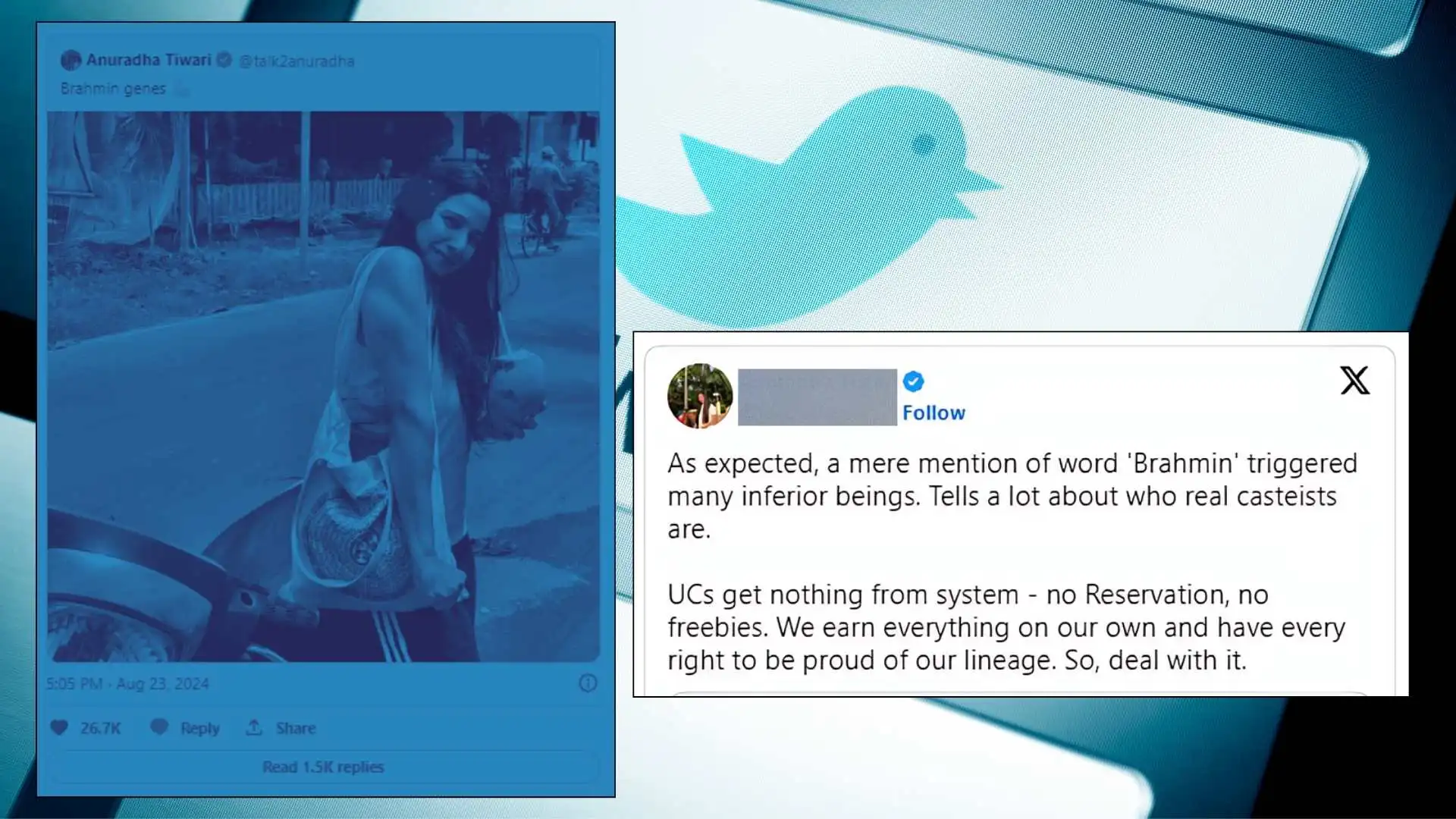A recent social media post by Anuradha Tiwari, CEO of a content marketing firm, has sparked a heated debate, drawing both criticism and support. On August 22, Tiwari shared a photo of herself with the caption “Brahmin genes,” which has since garnered significant attention, reaching 5.2 million views. The post triggered a wave of responses, leading to an ongoing controversy over caste pride and social justice narratives.
As the discussion escalated, Tiwari posted a follow-up statement on Friday, defending her original post and addressing the backlash. She argued that simply mentioning the word “Brahmin” provoked reactions from what she termed “inferior beings,” suggesting this response highlighted the real “casteists.” Tiwari emphasized that upper castes, referred to as UCs, do not benefit from government reservations or freebies, and therefore, have the right to take pride in their lineage.
This follow-up post generated further division among social media users. While some criticized her remarks as insensitive, others supported her stance, arguing that the current reservation policies are unjust. Tiwari continued to stand by her original post, stating, “Proud Dalit/Muslim/Tribal – Okay. Proud Brahmin – Not okay.” She claimed there was a systemic effort to make Brahmins feel guilty about their identity, calling for a change in this narrative and encouraging Brahmins to be unapologetic about their heritage.
Supporters of Tiwari’s views argued that Brahmins have been forced into silence and made to feel “guilty” for expressing pride in their identity. However, not all agreed with her perspective. Vikas Pandey, a software engineer, commented, “Agree with many things except considering others as inferior. One can’t fight for ‘equality’ if they consider themselves as ‘superior’ to others.” Another user, Ashish Arora, expressed frustration with government policies, stating, “Fully support you. We are milked by the government for taxes and in return get nothing.”
On Saturday morning, Tiwari continued to engage her followers with another post questioning the current societal attitudes towards Brahmins. She wrote, “Brahmins today fear revealing their full name. So much hatred has been spread against us. We have been made villains by social justice activists and politicians. We don’t harm anyone. We get no help from government. We work hard. Why should we be ashamed of our caste?”
Her comments sparked further debate, with hundreds of social media users voicing their opinions. Shashank Dubey, an X user, supported Tiwari, claiming that there has been a concerted effort to suppress general castes, particularly Brahmins. On the other hand, some users criticized Tiwari’s remarks. Deepali Singh, an X user, commented, “It is astonishing to see someone flaunting what they call ‘Brahmin genes’ as if that equates to superiority. From this post, it seems more like a display of stupidity than anything else.”
The ongoing debate highlights the complex dynamics of caste identity and social justice in India. Tiwari’s statements have sparked a broader conversation about caste pride, discrimination, and the role of social media in shaping public discourse. As the discussion continues, it remains to be seen how this debate will influence societal perceptions and policies related to caste in India.
Also Read: This Woman Chopped-Off Her Breast To Revolt Agaisnt Breast Tax: Dark Reality Of Indian History






















